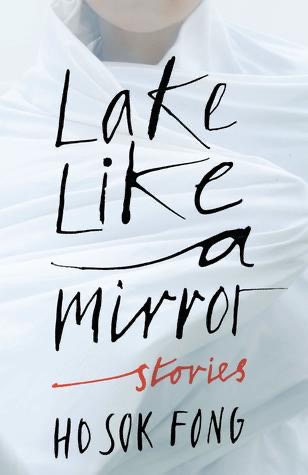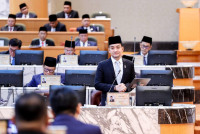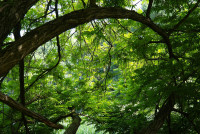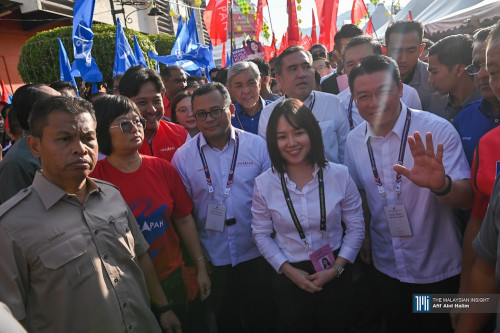“In the ink-blue twilight, it was as if she’d crossed into a dream world, her everyday consciousness peeled back and replaced by a new, peculiar sensitivity that surged like a wave, so powerful that she felt she might fly. Might leave the surface of the Earth, be swept beyond the horizon and no longer belong to any time, or any place.”
~ Ho Sok Fong, ‘Lake Like A Mirror’*
MALAYSIAN literature is as plural as its people. Its polyglot landscape – oral and inscribed – mirrors the heady, irresistible chaos of our cultural reality.
Yet many Malaysian readers rarely venture beyond the margins of their imagined literary communities, conditioned (like so much in this country) by imposed categories of identity, ethnicity and language. We tend to read within neatly-defined language realms – ‘national language’, ‘minority language’, ‘mother tongue’ – reinforcing our respective notions of self and other.
The dearth of literary translation between local Malaysian languages further exacerbates insularity among readers. Readers inclined towards ‘books written in English’ are perhaps the most insular of all, believing that their elective affinity for a global language renders their literary sensibilities somehow more worldly.
Malaysian literature written in local languages of Malay, Chinese, Tamil, and indigenous languages offers insight into distinct and variegated worldviews, revealing the intrinsic cosmopolitanism of our collective experience. Reading critically across the spectrum of local literature allows us to see beyond constructs of ‘identity’ inherited from colonialism, adopted for purposes of national politics, and ossified through institutional bureaucratisation.

One of the most vibrant varieties of local literature is that of the Chinese Malaysian community, also known as Mahua literature. Resonating beyond Malaysian shores, Mahua writers have been recognised and honoured internationally, yet their work and achievements receive little official recognition in Malaysia.
Mahua literature often reveals an underlying crisis of belonging in the Chinese Malaysian experience. Mahua writers have long perceived themselves as marginalised by the politics of race and language in Malaysia. Since the racial riots of May 13, 1969, the Chinese Malaysian community has been painted as ‘political other’. The precariousness of their position led to an exodus of Chinese Malaysian intellectuals and students to Taiwan, a place many Mahua writers now call home.
While many Mahua writers live in a state of ‘self-exile’ from their homeland, the themes of Mahua literature remain distinctly Malaysian. Sarawak-born novelist Zhang Guixin and Johor-born literary scholar and fiction writer Ng Kim Chew are two celebrated Mahua writers who have settled in Taiwan and continue to write about Malaysia.
Mahua women writers, too, have left their indelible mark. Ipoh-born Li Zishu has won numerous Huazhong Literary Awards, while the work of Kedah-born Ho Sok Fong has garnered international acclaim. Ho’s collection of short stories, ‘Lake Like a Mirror’, translated by Natascha Bruce and published by Granta, was recently shortlisted for the 2020 Warwick Prize for Women in Translation.

While the translation of Mahua literature into English has opened avenues to an international readership, it is important to remember that the translation of Mahua literature into Malay was once a vital literary activity, championed by the likes of National Laureate Usman Awang. In the 1980s, Dewan Bahasa dan Pustaka (DBP) published numerous Malay translations of Mahua poetry and short stories. These efforts gradually waned as DBP’s translation activities shifted focus to world literature, including Chinese classics. Without doubt, the long shadow of 1969 – and its ramifications on national political posturing – also contributed to distance and estrangement between Malay literature and Mahua literature.
In recent years, however, there has been renewed interest in Mahua literature among wider Malaysian literary circles. There is an exciting new initiative of literary translation, spearheaded by the writer SM Zakir, that involves the translation of six Mahua short stories into Malay, and six Malay short stories in Chinese. Once published, these translated books will hopefully nurture sustained dialogue and engagement between Mahua and Malay literary communities.
In 2019, the George Town Literary Festival (GTLF) curated a special focus on Mahua literature, featuring several Mahua writers, including Tee Kim Tong, Tan Cheng Sin and Ho Sok Fong, across panel discussions, readings, book launches and conversations. A discussion in Malay on Mahua literature featuring Prof Ngoi Guat Peng and Dr Show Ying Xin, moderated by Zikri Rahman, and was featured at GTLF 2020.

As we mark the Lunar New Year, in a state of semi-lockdown, perhaps there is no better time to learn to read each other – with a sense of openness and self-discovery, beyond the margins of identity politics that blinds us to who we are. – The Vibes, February 13, 2021
Below is a recommended reading list of works by Mahua writers:
- ‘My South Seas Sleeping Beauty’ by Guixing Zhang, translated by Valerie Jafee, published by Columbia University Press
http://cup.columbia.edu/book/my-south-seas-sleeping-beauty/9780231140584
- ‘Lake Like A Mirror’ by Ho Sok Fong, translated by Natascha Bruce, published by Granta
https://granta.com/contributor/ho-sok-fong/
- ‘Slow Boat to China and Other Stories’ by Ng Kim Chew, translated by Carlos Rojas, published by Columbia University Press
http://cup.columbia.edu/book/slow-boat-to-china-and-other-stories/9780231168120
- ‘The Northern Border’, a short story by Li Zishu, translated by Joshua Dyer, published by Paper Republic
https://paper-republic.org/pubs/read/the-northern-border/
- ‘Retribution: The Jiling Chronicles’ by Li Yung-p’ing, translated by Howard Godblatt and Sylvia Li-chun Lin, published by Columbia University Press
http://cup.columbia.edu/book/retribution/9780231128742
- Mahua Modernist Poetry as a Translational Practice, by Zhou Hau Liew and Zhou Sivan, an essay published by Full Stop
For more discussions on Mahua Literature, listen to these podcasts from George Town Literary Festival 2019 and 2020:
- Mahua Lit in a House of Mirrors:
https://open.spotify.com/episode/0Jfn7X9Ulub0Tba12XZDQm
- Riwayat Kebudayaan Malaya (1940-1960) Melalui Sastera Mahua:
https://open.spotify.com/episode/5OHVF1KOvfPU2tePnAo5jW
*Translation of excerpt of Ho Sok Fong’s short story by Natascha Bruce






















